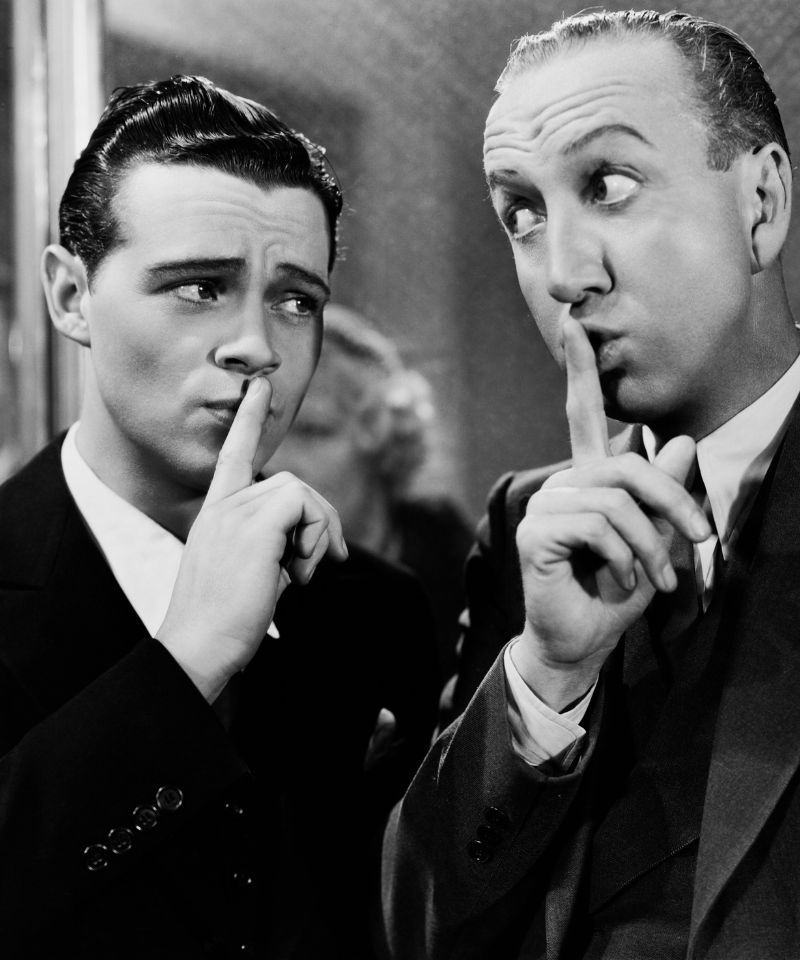Freemasonry, a historic fraternity known for its deep-rooted traditions, rituals, and commitment to fostering brotherhood, upholds a set of core principles and values that guide the conduct of its members.
Despite its rich diversity and inclusive nature, the organization maintains a clear stance on certain actions, behaviors, or beliefs that are deemed incompatible with its ethos.
This article explores the boundaries set within Freemasonry, shedding light on what is considered unacceptable and why these standards are essential for preserving the integrity and harmony of this venerable institution.
From the importance of ethical conduct to the rejection of divisive beliefs, we delve into the aspects of behavior that are frowned upon in Freemasonry, offering insights into how these guidelines help sustain the fraternity’s mission of unity, personal growth, and community service.

Membership Requirements
If you’re interested in becoming a Freemason, there are some basic requirements you’ll need to meet.
Keep in mind that specific qualifications may vary from one lodge to the next, but some general rules apply.
To join Freemasonry, you must be:
- A man of good character and reputation.
- At least 21 years of age (the minimum age varies in some jurisdictions. It’s sometimes 18).
- Believe in a Supreme Being.
- Able to support yourself and your family (gotta have a job, son).
It’s important to note that Freemasonry welcomes men of every country, religion, race, age, income, education, and opinion.
The organization values diversity and encourages members to respect each other’s differences.
Once you’ve met the basic qualifications, you’ll need to go through a process to become a full member.
This process typically involves:
- Submitting a petition to the lodge you wish to join.
- Being recommended by two members of the lodge.
- Going through an interview process with members of the lodge.
- Being accepted by a vote of the members.
If you’re accepted, you’ll go through a series of three degrees: Entered Apprentice, Fellowcraft, and Master Mason.
These degrees are the three ceremonial stages that a man must complete to become a full member of the Masonic fraternity.
Collectively, these degrees are known as the symbolic lodge (often called blue lodge).
It’s worth noting Freemasonry does not actively recruit members.
If you’re interested in joining, you’ll need to reach out to a lodge in your area and express your interest.
Freemasonry is a voluntary organization, and it’s up to you to decide whether it’s right for you.
Religious and Political Views

Freemasonry is not a religion, nor does it dictate or impose any specific religious beliefs on its members.
However, it requires all candidates to express a belief in the existence of a Supreme Being and to acknowledge that in “all cases of difficulty and danger”, they put their trust in God.
This requirement ensures that the principles of morality and virtue are upheld by the members.
As a Freemason, you are encouraged to practice your chosen religion and attend services regularly.
However, you are not allowed to discuss religion or politics during lodge meetings.
Freemasonry promotes harmony and unity among its members, regardless of their religious or political affiliations.
Freemasonry also frowns upon any attempt to use the organization for political or religious purposes.
You are not allowed to use your membership to promote a political agenda or to advance the interests of any particular religious group.
Freemasonry is not a platform for political or religious activism.
In addition, Freemasonry does not tolerate any form of religious or political discrimination.
The organization welcomes men of all races, religions, and political beliefs.
Discrimination of any kind is strictly prohibited and can result in expulsion from the organization.
In summary…
As a Freemason, you are expected to uphold the principles of morality, virtue, and harmony.
While you are encouraged to practice your chosen religion, you are not allowed to discuss religion or politics during lodge meetings.
Freemasonry promotes unity among its members and does not tolerate any form of discrimination or the use of the organization for political or religious purposes.
Hazing and Discrimination
Freemasonry is an organization that values brotherhood, charity, and morality.
As such, hazing and discrimination are frowned upon by the fraternity.
Here are some things you should know about hazing and discrimination in Freemasonry.
Hazing
Hazing is the practice of subjecting new members to humiliating or degrading rituals as a way of initiating them into a group.
Freemasonry does not condone hazing in any form.
New members should be welcomed into the fraternity with respect and dignity and should not be made to feel uncomfortable or embarrassed.
Discrimination
Freemasonry is an inclusive organization that welcomes men of all races, religions, and backgrounds.
Discrimination of any kind is not tolerated in the fraternity.
Freemasons are expected to treat each other with respect and to value the diversity of their members.
In the past, there have been accusations that Freemasonry discriminates against women and non-Christians.
While it is true that women are not allowed to become Freemasons (although there are female Masonic lodges), this is not due to discrimination but rather to the fact that Freemasonry is a fraternity for men.
Reporting Hazing and Discrimination
If you witness hazing or discrimination in your Masonic lodge, it is important that you report it to the appropriate authorities.
This could include the Worshipful Master, the Grand Lodge, or even law enforcement if the situation warrants it.
By reporting hazing and discrimination, you are helping to uphold the values of Freemasonry and ensure that all members are treated with respect and dignity.
Remember, hazing and discrimination have no place in Freemasonry.
As a member of the fraternity, it is your duty to uphold the values of brotherhood and morality and to ensure that all members are treated with respect and dignity.
Misuse of Masonic Symbols and Secrets

As a Freemason, you have taken an oath to keep the secrets of the fraternity.
Misuse or abuse of these secrets is not only frowned upon but can also result in expulsion from the organization.
This includes the misuse of Masonic symbols.
Masonic symbols are used to represent the values and principles of the fraternity.
They are not intended for personal gain or profit.
Using these symbols for commercial purposes or in a way that misrepresents the fraternity is considered a misuse of Masonic symbols.
Furthermore, revealing Masonic secrets to non-members is strictly prohibited.
This includes the modes of recognition (passwords and grips).
The misuse of these secrets can compromise the security of the fraternity and is considered a serious offense.
Additionally, it is important to remember that Masonic symbols and secrets are not intended to be used as a means of superiority over non-members.
Using these symbols to intimidate or belittle others is not in line with the values of the fraternity.
Criminal Activity
Freemasonry frowns upon any kind of criminal activity.
If you have a criminal record, it may be difficult for you to become a Freemason. In fact, most jurisdictions require that you have a clean criminal record to become a member.
If you have been convicted of a felony, you *may* not be able to join.
However, the rules vary from jurisdiction to jurisdiction.
Some states may allow you to join depending on the nature of the crime and the time that has passed since your conviction.
It’s important to note that if you do become a Freemason and are later convicted of a crime, it can result in expulsion from the organization.
Freemasons take their commitment to morality and upholding the law very seriously.
Additionally, if you use your membership to engage in criminal activity, it can result in severe consequences.
The organization has a zero-tolerance policy when it comes to criminal behavior, and any member found to be engaging in such behavior will be expelled immediately.
Unapproved Lodges and Practices
As a member of Freemasonry, it is important to understand that there are certain lodges and practices that are not approved by the organization.
These unapproved lodges and practices are considered to be outside the boundaries of the regular Freemasonry, and members who participate in them may face disciplinary action or expulsion.
One example of an unapproved lodge is the irregular or clandestine lodge.
These lodges are not recognized by the Grand Lodge and are not considered to be part of the regular Freemasonry.
They may use similar symbols and rituals, but they do not follow the same principles and values as regular lodges.
Another unapproved practice is the use of unauthorized rituals or ceremonies.
Freemasonry has a set of well-established rituals and ceremonies that are used to initiate new members, confer degrees, and perform other important functions.
Any deviation from these established rituals and ceremonies is not approved and may be considered a violation of the organization’s rules.
It is also important to note that Freemasonry frowns upon any practice that involves discrimination or prejudice.
The organization values diversity and inclusivity and expects its members to uphold these values.
Any behavior or practice that goes against these principles is not approved and may result in disciplinary action.
RELATED:
6 Reasons Why You Can Get Expelled from Freemasonry
Un-Masonic Conduct: What It Is and How to Avoid It